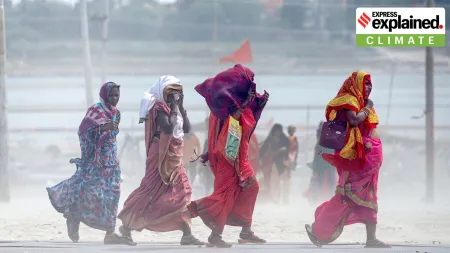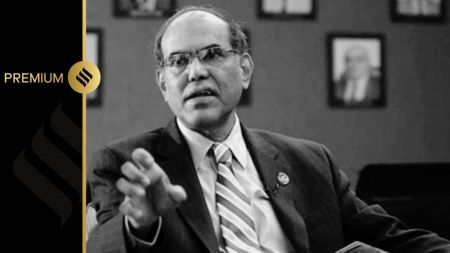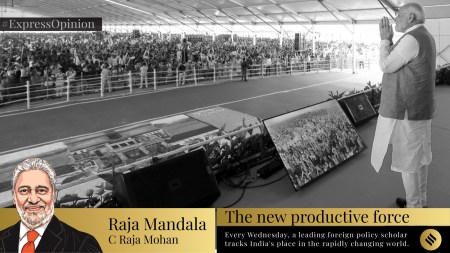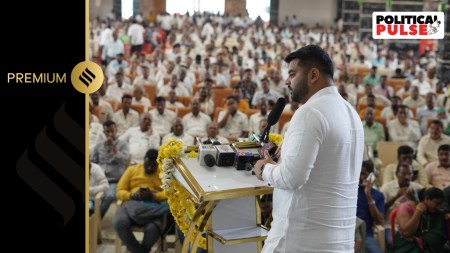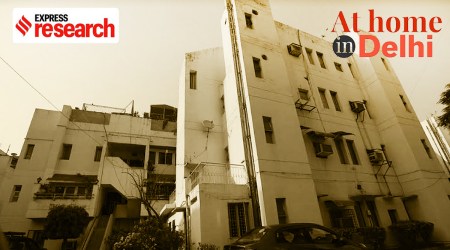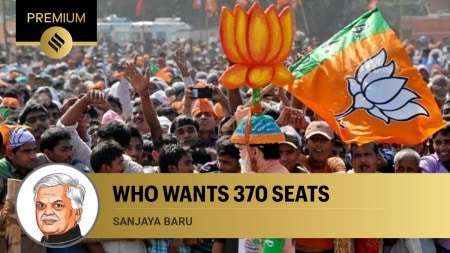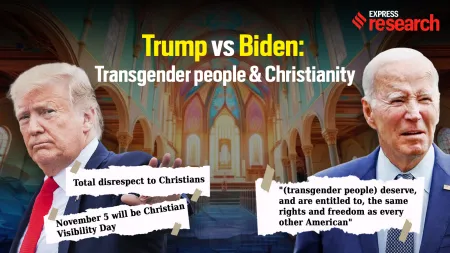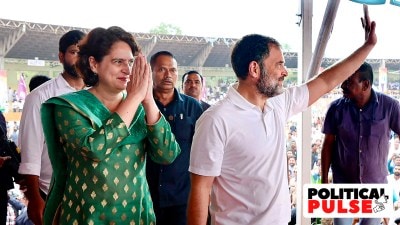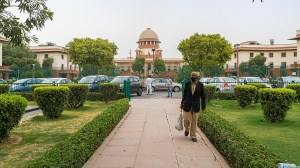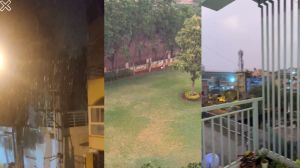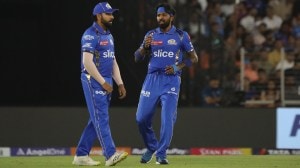- India
- International
Maharashtra takes 80% beds in private hospitals, caps charges for treatment
The notification said that “80 per cent of total operational bed capacity will be regulated by prices mentioned and this will apply to both isolation beds and non-solation beds”.
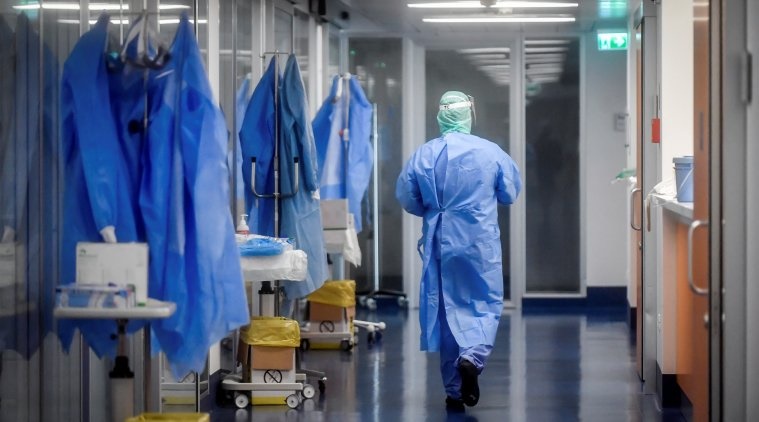 Some private hospitals said the notification will make it difficult for them to break even, citing extra cost of PPEs, accommodation and transport for staffers. (Representational Image)
Some private hospitals said the notification will make it difficult for them to break even, citing extra cost of PPEs, accommodation and transport for staffers. (Representational Image)
After negotiating for several days with private hospitals, the Maharashtra government Thursday night issued a notification taking over 80 per cent beds in private hospitals and nursing homes across the state.
In Mumbai alone, this will open up around 4,400 hospital beds in the private sector. The city has been struggling with a shortage of beds to treat critically ill Covid-19 patients.
With 41,642 Covid-19 cases, Maharashtra accounts for a third of all cases in India. The notification covers hospitals run by charitable trusts, including all the big Mumbai hospitals such as H N Reliance, Lilavati, Breach Candy, Jaslok, Bombay Hospital, Bhatia, Wockhardt, Nanavati, Fortis, L H Hiranandani and P D Hinduja among others.
The government has also capped treatment charges for Covid-19 and other illnesses to be treated in the new capacity created in these hospitals and nursing homes. State officials said these beds will be managed through a central portal and patients will be directed to the hospital where a bed is available. The charges for a Covid-19 patient in isolation ward cannot be more than Rs 4,000 a day, the maximum charge for an ICU (for (intensive care unit) is capped at Rs 7,500 a day, and charges for ventilator are capped at Rs 9,000 a day.
The new charges will include drugs, doctor consultation fees, nursing, food and bed charges, but will exclude a Covid test, personal protective equipment, MRI, CT scan and expensive drugs like Tocilizumab. Earlier, a Covid-19 patient was normally charged between Rs 40,000 and Rs 50,000 a day for ventilator in a private hospital. With caps, the charges will be lower by as much as 82 per cent.

Items like personal protective equipment (PPE), pacemaker, intra-ocular lenses, stents, catheter, balloon, medical implants, consumables cannot be charged over 10 per cent mark up on net procurement cost. This means if a PPE costs Rs 100, a hospital cannot charge the patient more than Rs 110.
Until now, public hospitals were handling 80 per cent of total Covid-19 burden in state, the remaining was managed by private sector. With the patient count spilling beyond public sector capacity, multiple rounds of negotiations with private hospitals were conducted to share the pandemic burden.
The notification said that “80 per cent of total operational bed capacity will be regulated by prices mentioned and this will apply to both isolation beds and non-solation beds”.
“To redress the grievances regarding exorbitant amount of money charged by healthcare providers from patients not covered by any health insurance product or any bilateral agreement between any hospital and private corporate group and who have exhausted their health insurance cover, all healthcare providers functioning in Maharashtra are directed to follow this order,” the notification said.
The staffing for these beds will be sourced from the private hospitals. The state has invoked the Maharashtra Essential Services Maintenance Act, 2005, and directed nurses and other employees to clock regular attendance. Many private hospitals have had to make do with skeletal staff over the last two months because of absenteeism.
“Each municipal corporation will analyse how many beds they get from each hospital by taking over 80 per cent. We are yet to calculate the over all number of beds in the state,” said Dr Sudhakar Shinde, who drafted the notification rates.
Also read | Maharashtra & Mumbai: In rising Covid cases and death counts, some encouraging trends
The notification made it clear that hospitals cannot offer differential treatment for those getting admitted under 80 per cent beds reserved by the government and those paying under remaining 20 per cent category.
Hospitals in Mumbai, Thane, Navi Mumbai, Panvel, and Pune which have agreement on treatment packages with General Insurance Public Sector Association (GIPSA), cannot charge more than the lowest bed category rates for patients. GIPSA is an association of government insurance companies that fixes package rates for surgeries in hospitals.
For hospitals not attached to GIPSA package rates, the rates specified in the notification will be applicable. For instance, an angiography cannot cost more than Rs 12,000, a normal delivery not more than Rs 75,000, dialysis Rs 2,500, a valve replacement is capped at Rs 3.23 lakh, a permanent pacemaker implantation at Rs 1.38 lakhs, a cataract surgery at Rs 25,000 and so on.
On April 30, the state government issued the first notification capping treatment charges for all beds in private hospitals to prevent over-charging in a pandemic situation. Private hospitals protested and a middle-path was found after three weeks of meetings. “They agreed to reserve 80 per cent beds and charge them as per our rates. In return they wanted to charge the usual prices for remaining 20 per cent,” a state official said.
As per the amended notification on Thursday, for the 80 per cent beds that have been taken over by the government, hospitals in Mumbai with more than 100 beds can charge only up to the maximum ceiling on prices, hospitals in Pune can charge only up to 85 per cent of the ceiling. The state government has graded the prices a hospital can charge based on the location, and the number of beds.
Dr Gautam Bhansali, of Bombay hospital, who coordinated with the government on behalf of private hospitals, said, “The rates fixed for ICU are low, but private hospitals have agreed to cooperate with the government to ensure poor patients don’t suffer.”
A senior official from Breach Candy Hospital in South Mumbai, said, “This is a government order and we will have to follow it. At this point I can say we are happy we will serve people in this pandemic situation.”
Dr V Ravishankar, chief operating officer in Lilavati hospital, said, “We are with the government in this. This is in force for a period of three months, if situation of pandemic improves before, that the notification may be dissolved. We are preparing our facility as per the new rates. We will also have to cut consultation fees for doctors. We have already informed them.”
Some private hospitals said the notification will make it difficult for them to break even, citing extra cost of PPEs, accommodation and transport for staffers. Chief secretary Ajoy Mehta said, “We will be starting trains soon to provide transportation. Municipal corporation is willing to provide accommodation to hospital staffers in nearby lodged and hotels.”
May 03: Latest News
- 01
- 02
- 03
- 04
- 05



